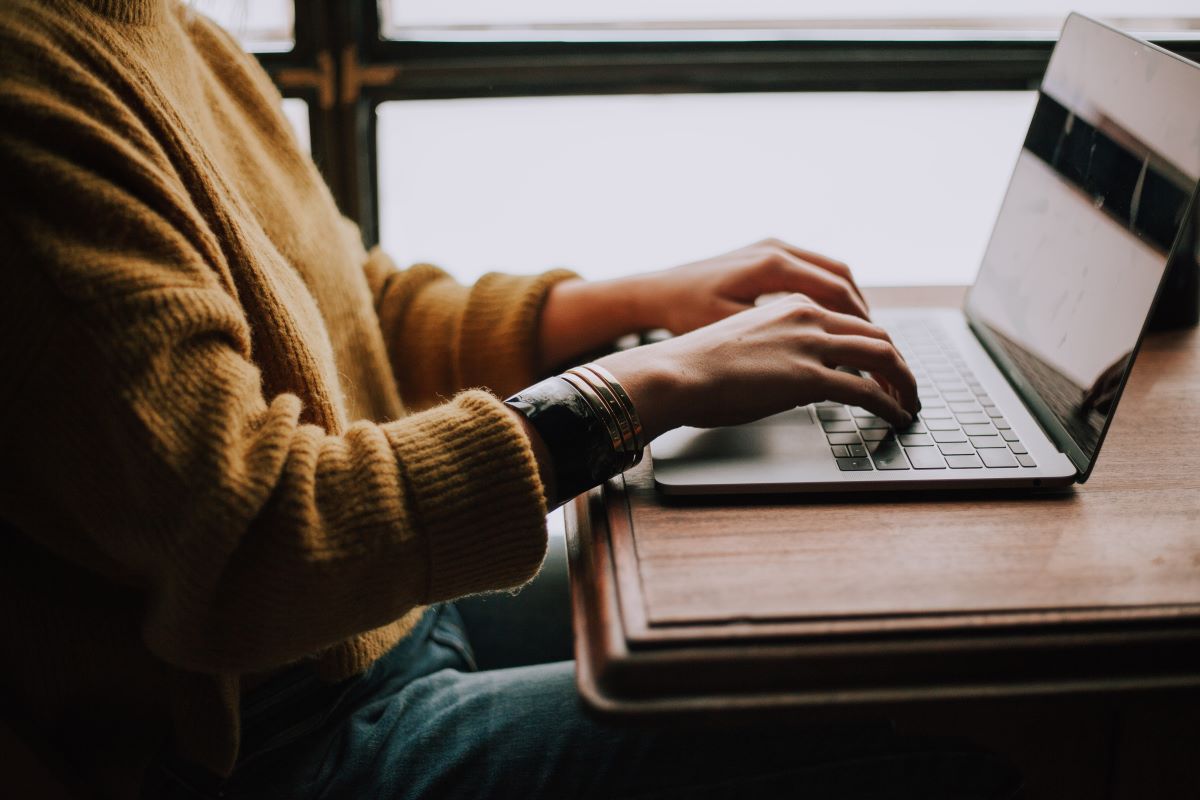We have a new and improved course search tool to help international students explore Australian study options. Find more information here

No matter where you are in the world, it's important to stay safe online. In this blog, we discuss the importance of online safety, how to protect your identity and what to do if you are affected by a data breach.
Online safety tips
Let's explore some easy steps that you can take to protect yourself online:
Use two-factor authentication (2FA)
Enable two-factor authentication (two-step verification) for all accounts, such as email and social media. This adds an extra layer of security by requiring a second form of verification, such as a text message or email code.
Create strong passwords
- Create passwords that include a mix of uppercase and lowercase letters, numbers and special characters.
- Change your passwords regularly and make sure they don’t contain any personal information such as your birth date.
- Make sure that you have a different password for each of your accounts.
Update software regularly
Keep your phone and computer software up to date for improved security on your devices.
Look out for fake emails (phishing scams)
Scams are often done by email and can look very real so it’s important to take the following steps:
- Always check the domain of the email address to make sure it is legitimate. If it is a generic domain such as @gmail or it is different to the domain on the company’s website, then it is most likely a fake email.
- Do not click on any links or open any attachments on emails unless you are sure they are legitimate.
- If you are unsure, visit the website of the company that you have received the email from and contact them directly.
Be careful with unknown numbers
If you receive a phone call from a bank or any company you have an account with, do not give any personal information such as passwords or PIN numbers over the phone. Most companies will never call you and ask for personal information.
If you are unsure or suspicious about the caller, hang up and phone the organisation directly. You can find their contact number on their official website and ring them to find out whether the company is trying to contact you.
Do not click on links in text messages
If you receive a text message from an unknown number, do not click on any links. Always go directly to their website and contact them if you are unsure.
Use secure Wi-Fi
When using public Wi-Fi, avoid accessing sensitive information, such as online banking. Make sure your home Wi-Fi network is password-protected.
Update your social media privacy settings
Review your social media privacy settings and limit the information visible to the public. Avoid sharing too much personal information online.
Shop online safely
When shopping online, use reputable websites, and make sure the website's URL starts with "https://" to indicate a secure connection. Avoid saving your payment information on websites. If you haven’t heard of the company before, check for reviews and who wrote the reviews to make sure they are from real people.
Backup important files
Regularly back up your important files to an external hard drive or cloud storage. This protects your information in case of data loss or ransomware attacks.
Dealing with data breaches
Despite your best efforts, data breaches can still happen. If you think your personal data has been leaked, here's what to do:
- Immediately change the passwords of affected accounts and enable two-factor authentication (see above) where possible.
- Keep a close eye on your bank and email accounts for any suspicious activity.
- Report any unauthorised transactions in your account to your bank.
- Submit a report using ReportCyber.
- If you are concerned that your identity has been compromised, contact your embassy and your bank immediately, and call IDCARE on 1800 595 160.
Mental health support
If you have been affected by online bullying or a cyber incident and are feeling stressed, please reach out for help. There are many free support services available in Australia.
Other useful resources
- You can learn more about protecting yourself from scams by visiting Scamwatch.
- Moneysmart provides free tools, tips and guidance to support people to take control of their finances, including information on what to do in the event of identity theft.
- The Australian Cyber Security Centre leads the Australian Government’s efforts to improve cyber security and provides advice and information on how to protect yourself online.
- The ATO website provides information on how to recognise and avoid tax scams and fraud.


